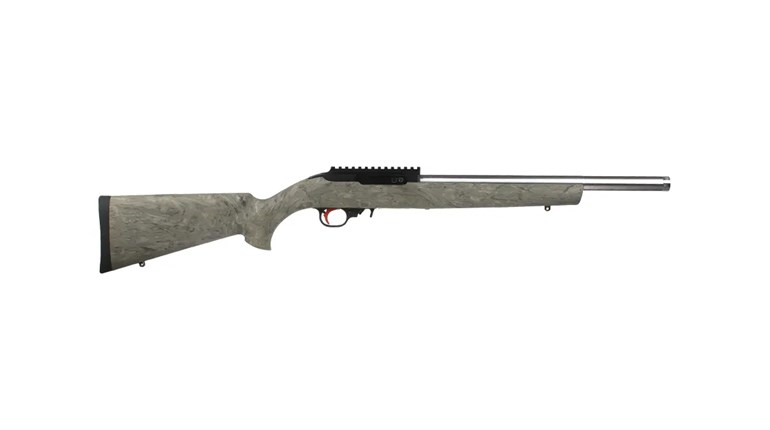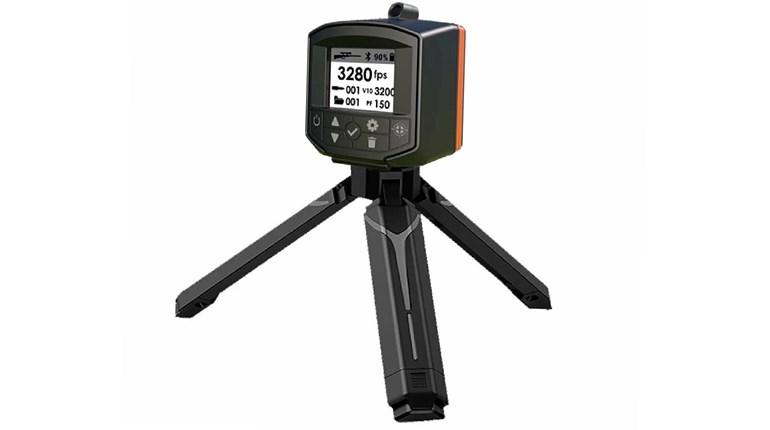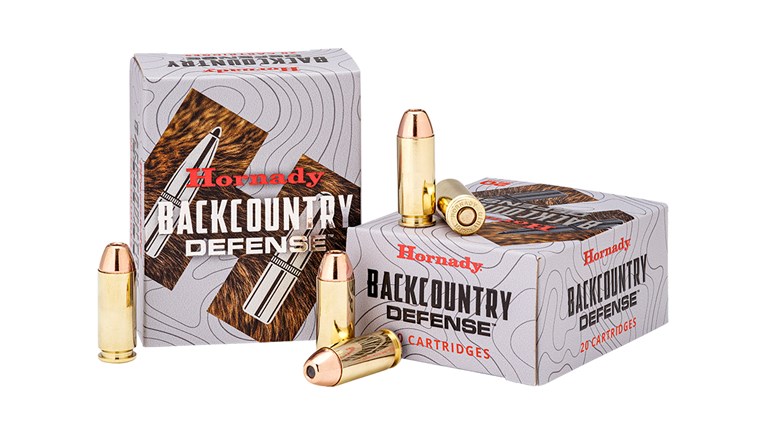
Among my earliest shooting sports recollections is of a weekend family gathering at my grandparents cabin that included some casual plinking with rimfire rifles. One of my older cousins brought along an old pump-action .22 LR which was unlike any rifle I had seen before. He had to help me aim the rifle since I wasn't quite big enough to steady it all on my own. However, the fore-end was easy to move back and forth and had a short enough stroke that I could cycle it by myself. It took a few tries but I got the feel for the rhythm of working the action. The good memories of fun we had shooting together that day stayed with me and, when I was old enough to start buying guns of my own, I kept an eye out for a good deal on a pump-action .22 LR.

As the years went by, I learned that this class of pump-action rimfires had become something of an anachronism. They were fairly popular in the late 19th and early 20th century, especially as shooting gallery guns at carnivals and fairs. However, the pump guns lacked the sustaining nostalgia of the classic lever-actions and they could not compete with the accuracy of the bolt-action models. This meant that when I got serious about finding a pump-action .22 LR in the early 2000's, the affordably priced field models were out of production and the guns I could find were of the notably more expensive deluxe and show-piece varieties.

I had mostly given up on this .22-caliber slide-action endeavor when I came across a Remington 572 Fieldmaster with the longer 22.75-inch barrel. Manufactured in 1958, it was parked in the used rifle rack at a local Mom 'N Pop shop. Dangling from the trigger guard was a remarkably low price, which was something like $79 if I remember correctly. But upon closer inspection, it became clear why this gun was such a bargain.

This rifle's previous owner had not attended to its proper care. The bluing was not in great shape and the fore-end displayed an uncharacteristic waggle when cycled. But the action was fairly smooth despite being utterly filthy. The guy behind the counter told me they had cut a knotted boot lace off the two plant hangers that had been twisted into the fore-end and the shoulder stock to form an impromptu shoulder sling. But they left the faux cast iron plant hangers in place ... To top off the obvious abuse, someone had gone to work on the left side of the shoulder stock with a Dremel tool to express, well, something, with quarter inch wide lines cut far too deeply to sand out. And just in case this stock-destroying art work has an intentionally insulting or offensive intent, I covered it up for the photos.

But based on what I could see at the time, and after a rudimentary bench check, it seemed like the rifle still had good bones. It was a good candidate to be resuscitated with a few new components and a bit of elbow grease. It was never my intention to restore this gun, but simply to get it back into safe-to-shoot condition. Knowing that I was at risk of purchasing a lost cause, I went ahead and bought the Remington 572 Fieldmaster and tucked it away for a rainy day as an at-home repair project. My intention was that I would get back to it before too long, but that was roughly two decades ago. I recently pulled it out once again with the intention of breathing new working life into this now 66-year old rifle.

Before making any permanent changes to this vintage rifle, I did my due diligence to verify that I was not unintentionally turning a priceless heirloom into an oversize paper weight (despite the obvious value-reducing damage). I found online listings for deluxe model 572s in excellent condition selling for as much as $750 all the way down to field-grade models in good condition selling for around $350. Using the NRA Museums Modern Gun Condition Standards, my field-grade gun was in Fair condition, at best. I believed it could be returned to a safe working condition with minor parts and repairs, a new set of stocks and I could see that the degree of damage to the finish would not interfere with its operations. But there was no way to know for certain without a much more thorough examination.

Heading into this project I did not know just how much repair would be required. Years before, I had started to break down the 572 using a barely legible photo copied set of rudimentary written instructions. There came a point where the instructions and the gun in front of me didn't line up. At that point, I reassembled the rifle and put it back into storage. This time around I had much more complete instructions and some online videos to guide the process.

The plan was to dismantle the 572 as much as necessary to verify the presence and state of the various internal components while cleaning them along the way. This project seemed like an ideal opportunity to test Real Avid's Bore-Max Master Cleaning Kit and Mobile Workstation at the same time. This portable brief-case sized system separates into three smaller sections. The translucent lid can serve as a drip pan or be lined with the provided cleaning mat to serve as a large parts tray. The central tray is filled with a variety of cleaning tools including a Bore-Max 3-piece cleaning rod, picks, bronze brushes and several calibers of bore brushes, jags and mops.

The last tray features three sections, for parts and storage, along with a pop-up pair of Gripper Yokes which lock in place to form a cushioned rifle rest. You'll also find a multi-function rechargeable flashlight with a flexible support arm which clips into the bottom tray. Real Avid also offers a separate Smart Assist kit which can be used on its own or as an enhancement to the Master Cleaning Kit. It includes three additional flexible arms supporting another flashlight, a generously sized magnifying glass and a smart-phone holder to make it easier to reference online resources while working on your firearm.

The Real Avid kits proved to be an ideal fit for a project like this one. It was especially helpful to have all of the storage space the trays provided for the various components. Every tool type was needed, including the pick and bronze brushes. And when the work was done, the system was clamped back together with a topside carry handle for easy transport and storage. It's an ideal set-up for folks who want to conduct do-it-yourself projects at home or who are looking for a cleaning system to take with them to competition weekends or for use in the field.

As the 572 was dismantled and cleaned, I was expecting to find at least a few yet-to-be-discovered problems on the inside. But to my genuine surprise, underneath the thick coat of coagulated grease and fouling, all of the internal parts were present and working properly. The only component missing from the gun was one of the two stamped sheet metal fore-end supports. In this case it was the rear one that went missing, which accounted for the fore-end's fishtailing when cycled. This little piece proved to be harder to find than expected. A variety of gun parts sites listed it but did not have it in stock. I finally found a pair for sale on eBay for $17 shipped.

Due to the external damage inflicted on the shoulder stock, and internal breaks and cracks found in the fore-end, it made sense to simply replace them both. Remember, my goal has never been to restore this gun but to resuscitate it, meaning get it back into working condition with as modest of an investment of cash as possible. It was more important to me to find a set of ready-to-install stocks at a fair price than to replicate the original stock system.

I found just what I was looking for at Boyds Hardwood Stocks. This company's classically styled American Plainsman shoulder stock is similar in shape to the original and provides a 13.75-inch length of pull (LOP). The Remington 572 fore-end has the same profile but without the grip ridges. Boyds offers a variety of solid wood and laminate finishes including the conservative, but still eye catching, Nutmeg laminate shown here. It's also one of the finishes which is available at no extra charge. This kept the shoulder stock's price at $121 and the fore-end at $69.

Boyds lets their customers know that some minor fitting may be required with their stocks. To prepare for this possibility, I checked in with Brownells. First, I ordered an affordable needle file set (345475000, $29) which proved to be just what I needed to open up the fore-end escutcheon port just a bit to better accommodate the escutcheon that was removed and reused from the factory fore-end. I also ordered a two ounce set of Brownells Acraglas Gel resin just in case I made any 'over adjustments' while sanding. In the end, I only needed just a bit of resin to secure the fore-end supports in their pre-cut slots.

With all of the Remington 572's components properly cleaned and lubricated, the shoulder stock's receiver joint sanded down 1/8th of an inch for a just-right fit and the fore-end outfitted with the appropriate hardware, it was time to put this pump-action back together. I was quite happy with the results. The bluing and aluminum receiver's finish shined up better than I had hoped. The bore shined up nicely with crisper rifling than I would have expected. The trigger broke cleanly with 4 pounds 11 ounces of trigger pull. The already smooth action became exceptionally smooth with a feather light stroke when cycling the fore-end. And Boyd's stocks give this rifle a fresh, clean look that preserves the classic lines of the gun.

For the range test, the 572 was topped off with an Athlon Optics Neos 3-9x40mm BDC 22 Rimfire Reticle scope ($162.49) using Warne Maxima 1-inch High 7.3/22 Quick Detach rings. I've put a good deal of mileage on this budget-priced optic over the last few years and it proved to be a great fit for this particular rifle.
Although it is far less common for .22 LR rifles to be ammunition sensitive than semi-automatic pistols, it does happen. With this in mind, I usually head to the range with a mix of .22 LR ammunition brands, bullet weights and bullet styles. This included two Winchester loads which I've shot several times before out of a variety of handguns and long guns without any issues. But in this case, the 572 just would not cycle properly with this brand resulting in jams, failures to feed and dented bullet tips. The malfunctions were consistent and severe enough that I thought something had broken inside of the rifle. But as soon as I switched to the next brand on the list, the malfunctions evaporated. My point in mentioning this is not to criticize Winchester—their ammunition is just fine. Instead, it's to point out that what appears to be a malfunctioning rimfire rifle may just be a poor ammunition fit. Be prepared to try a few different loads to find the best fit for your gun when shooting it for the first time.

Formal bench-rested accuracy testing was conducted at 50-yards by firing three, 3-shot groups of three different loads including Aguila Interceptor, CCI Clean-22 Subsonic Target and Federal Champion bulk box loads. It's interesting to note that all of the bullet velocities were slightly below those listed by the manufacturers. Modern .22 LR loads are primarily tuned for the more popular 16- to 18-inch carbine and rifle barrels. It seems that the 527's longer 22.75-inch barrel may be causing some drag which is starting to slow the bullets down a bit just before they leave the gun. Here are the results:

It feels great to finally have this Remington 572 Fieldmaster pump-action .22-caliber rifle back in working order. And I certainly have no reasons to complain about the results of this project. Even though this gun is past its prime in some ways, its history is reflected in the rubbed bluing, a bit of pitting here and a few scratches there. We'll never know for certain what adventures this rimfire passed through before it came into my possession but I'm looking forward to enjoying it for a few more.

Project Tools & Parts
- Boyds Hardwood Stocks American Plainsman Buttstock, Nutmeg Laminate (#3U17319011ZZ) $121
- Boyds Hardwood Stocks Remington 572 Fore-end, Nutmeg Laminate (#3U17319091ZZ) $69
- Brownells Acraglas Resin Gel 2-oz. Kit (#081015004) $16.49
- Brownells Economy Needle File Set (#345475000) $29.99
- Real Avid Bore-Max Master Cleaning Kit and Mobile Workstation (AVBMMK) $199.99
- Real Avid Smart-Assist Essential 3-Pack (AVMVACC) $99.99





































